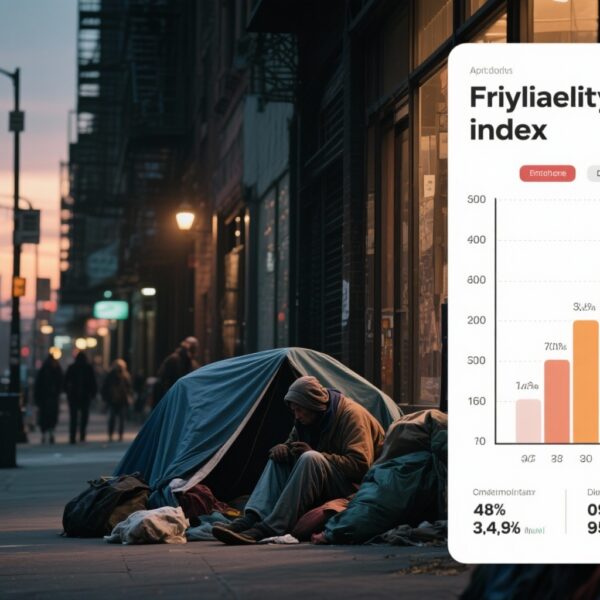Highlight
- The G-oncoCOACH trial is a multicentre randomized controlled study evaluating CGA combined with intensive patient coaching in elderly patients with solid tumors undergoing systemic therapy.
- Integration of a geriatric team for implementing GA-based recommendations and providing extensive coaching resulted in a clinically meaningful 10.9-point improvement in global health status-related quality of life at 6 months versus standard oncology care.
- Adherence to geriatric assessment-based recommendations was significantly higher in the intervention group, and factors such as low baseline QoL and high comorbidity predicted QoL improvement.
- This study supports implementation of CGA with multidisciplinary geriatric involvement and patient coaching to improve outcomes in older oncology patients.
Study Background
Older adults with cancer represent a rapidly growing population with complex health needs that challenge oncologic care. Systemic therapy in this population requires balancing treatment efficacy and tolerability, complicated by comorbidities, functional impairments, and psychosocial factors common in aging. Comprehensive geriatric assessment (CGA) has emerged as an important tool to identify vulnerabilities and tailor interventions in older patients. While CGA is internationally recommended in oncology, data on its impact specifically on patient-centered outcomes such as quality of life (QoL) remain limited. The G-oncoCOACH trial was designed to address this gap by evaluating whether combining CGA with multidisciplinary care and extensive patient coaching improves QoL for older patients receiving systemic cancer therapy.
Study Design
The G-oncoCOACH study was a multicentre randomized controlled trial conducted in two academic hospitals in Belgium between October 2019 and August 2021. Eligible participants were patients aged 70 years or older with solid tumors initiating systemic therapy, either curative or non-curative, with an estimated life expectancy of at least six months.
Participants were randomized 1:1 to either the control arm receiving standard oncology care where GA-based recommendations were implemented by the oncology team or the intervention arm where a geriatric team implemented the recommendations plus intensive patient coaching was provided.
The primary endpoint was change in global health status (GHS)–a measure of overall QoL–from baseline to six months, assessed with the validated EORTC QLQ-C30 questionnaire. Secondary analyses examined predictors of QoL change and adherence to GA-based recommendations. No masking of participants or staff was performed due to the nature of the intervention.
Key Findings
A total of 217 patients were enrolled; 212 had evaluable baseline QoL data (107 control, 105 intervention). The mean age was 76.7 years, with an equal gender distribution. Lung (19%), colorectal (15%), and breast cancer (10%) were the predominant tumor types.
At six months, the intervention group experienced a mean improvement in QoL GHS score of 10.9 points compared with the control group (95% CI 3.7 to 18.0, p=0.003), which is considered clinically meaningful based on established benchmarks for the EORTC QLQ-C30.
Sensitivity analyses confirmed robustness of the result. The geriatric intervention group demonstrated a higher adherence rate to GA-based recommendations (65% versus 45%) indicating improved implementation of care plans.
Exploratory analyses identified that patients with lower baseline QoL and higher comorbidity burden derived greater QoL improvements, underscoring the importance of individualized geriatric assessment.
Expert Commentary
The G-oncoCOACH trial provides strong evidence reinforcing CGA as a cornerstone of older cancer patient management. By integrating a specialized geriatric team and emphasizing patient coaching, the study addresses common barriers to implementing GA-derived recommendations in routine oncology practice.
Improved adherence likely mediates the QoL benefits observed. These results align with prior observational studies but represent one of the first high-quality randomized trials with a QoL primary outcome in this population.
Limitations include lack of blinding and a study population limited to two centers in Belgium, which may affect generalizability. Nonetheless, the diverse cancer types and both curative and palliative systemic therapy contexts enhance applicability.
Clinicians should consider adopting comprehensive geriatric programs with multidisciplinary coordination and patient empowerment strategies to optimize treatment tolerability and QoL outcomes.
Conclusion
The G-oncoCOACH study demonstrates that comprehensive geriatric assessment combined with implementation by a geriatric team plus extensive patient coaching significantly improves quality of life in older patients undergoing systemic treatment for solid tumors. This approach enhances adherence to tailored care recommendations and supports patient-centered oncology care. Future research should explore scalability in diverse healthcare settings and long-term impacts on survival and functional outcomes.
Funding and Registration
This study was funded by Stand Up to Cancer (Kom op tegen Kanker). The trial is registered at ClinicalTrials.gov under identifier NCT04069962.
References
Kenis C, Peeters L, Laethem L, De Cock J, Compté N, Flamaing J, Milisen K, Fagard K, Lobelle JP, Laenen A, Decoster L, Wildiers H. Effectiveness of comprehensive geriatric assessment with extensive patient coaching for improving quality of life in older patients with solid tumours receiving systemic therapy (G-oncoCOACH): a multicentre randomised controlled trial. Lancet Healthy Longev. 2025 Aug;6(8):100743. doi:10.1016/j.lanhl.2025.100743. Epub 2025 Aug 13. PMID: 40818480.


